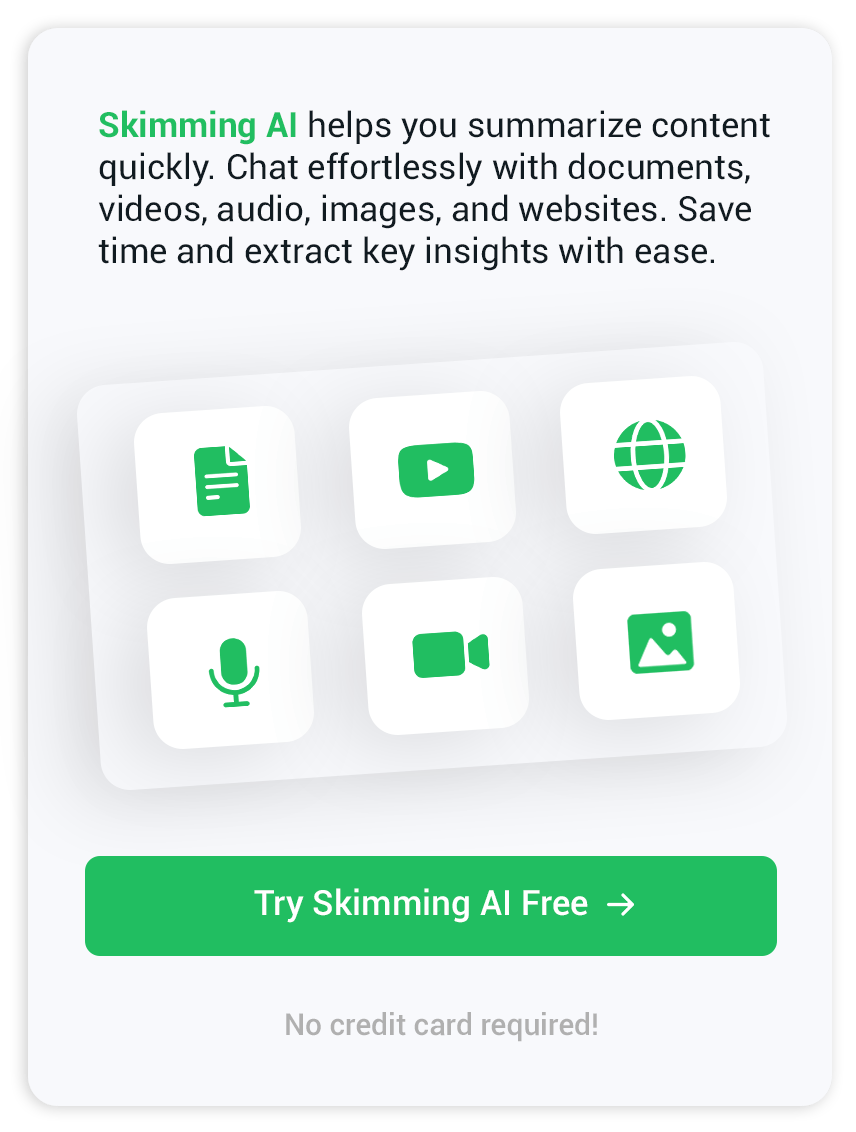How to Use an AI Chatbot Assistant to Simplify Conversations Across File Types
Handling multiple file formats can be frustrating, especially when extracting key information, summarizing long documents, or interacting with complex content. That’s where an AI chatbot assistant comes in. Instead of manually sifting through PDFs, Word docs, images, audio files, and even YouTube videos, you can upload them and let the chatbot do the heavy lifting.
This guide will explain how you can use an AI chatbot assistant to make conversations with different file types effortless. Whether you’re a student, professional, or just someone looking to boost productivity, this is the game-changer you didn’t know you needed.
Why Use an AI Chatbot Assistant for Different File Types?
Think of an AI chatbot as your assistant—but one that never sleeps, never complains, and can process tons of data in seconds. Instead of struggling with different software for each file type, an AI chatbot can:
Read and summarize text from PDFs and documents
Extract content from images (including handwritten notes and screenshots)
Transcribe and analyze audio files
Summarize YouTube videos without watching them
Answer questions based on uploaded content
Now, let’s explain how to use an AI chatbot assistant to interact with each file type.
1. Chat with PDFs and Documents
We’ve all been there—staring at a lengthy PDF or Word document, trying to find the one key detail we need. AI chatbots make this process painless.
How It Works:
Upload your PDF or document
Ask specific questions like:
“What are the key takeaways from this report?”
“Summarize section 3 of this document.”
“Find where [specific keyword] is mentioned.”
Get instant responses, saving you hours of reading.
Real-World Use Cases:
Students – Summarize research papers and highlight key arguments
Professionals – Quickly analyze contracts, reports, and proposals
Writers – Find references and relevant sections without scrolling endlessly
2. Extract Text from Images
Have you ever taken a photo of a whiteboard or a screenshot of important notes? Instead of manually typing the text, an AI chatbot can extract and process it instantly.
How It Works:
Upload an image (JPG, PNG, or even scanned documents)
The chatbot converts the text into editable form
You can ask follow-up questions like:
“What does this note mean?”
“Summarize the key points.”
“Translate this text.”
Real-World Use Cases:
Students & Professionals – Convert lecture slides, meeting notes, or handwritten ideas into digital text
Businesses – Extract text from receipts, invoices, and contracts
Multilingual Users – Translate text from different languages without hassle
3. Chat with Audio Files
If you’ve ever struggled to take notes during a long lecture, interview, or podcast, this one’s for you. Instead of replaying an audio file multiple times, let the chatbot transcribe and summarize it.
How It Works:
Upload an audio file (MP3, WAV, etc.)
Get a full transcription.
Ask for summaries, key points, or specific information.
Real-World Use Cases:
Journalists & Content Creators – Transcribe interviews in minutes
Students – Summarize lectures instead of re-listening to hours of audio
Business Professionals – Extract key insights from recorded meetings
4. Summarize YouTube Videos Without Watching
Not every YouTube video has captions, and not everyone has time to watch a 30-minute tutorial. An AI chatbot assistant can summarize video content in seconds.
How It Works:
Paste the YouTube link
The AI processes the video’s transcript
Ask questions like:
“What are the main points?”
“Summarize this in 100 words.”
“What are the action steps mentioned?”
Real-World Use Cases:
Students – Get the gist of educational videos without watching the entire lecture
Professionals – Summarize industry-related talks and discussions
Marketers – Extract insights from competitor videos quickly
5. Chat with Any Text Content
Of course, you can chat with regular text—whether it’s something you type in manually, paste from an email, or pull from a website. This makes it easy to:
Rewrite content in a different tone
Get explanations for complex topics
Generate summaries and insights
How to Get Started with an AI Chatbot Assistant
Using an AI chatbot assistant is simple. Here’s a step-by-step guide:
Choose a platform – Use a reliable AI chatbot that supports multiple file types (like Skimming AI).
Upload your file – Drag and drop, whether it’s a document, image, audio, or video link.
Ask questions – Type your query and get instant responses.
Extract insights – Summarize, translate, or analyze the content as needed.
Save and share – Copy the output or download it for future use.
Final Thoughts
An AI chatbot assistant isn’t just another tool—it’s your all-in-one solution for handling information across different file types. Whether you’re a student trying to summarize lecture notes, a professional analyzing reports, or someone who wants quick insights from media content, this technology makes life easier.
So, why waste time manually going through files when an AI chatbot can do it in seconds? Try it out and make your workflow smoother than ever.
Got questions? Drop them in the chat!

